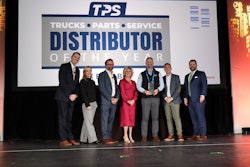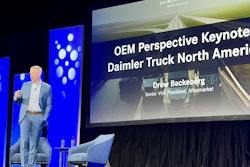Owning and operating a business today requires managing a wide selection of personalities. And while some personality traits are incredibly unique, other traits — specifically generational traits — are commonly shared.
Today’s workforce in particular includes four distinct generations, and each views their work and their career differently, says Anna Liotta, CEO of Resultance.
Liotta differentiates the four generations as follows.
She says the oldest generation in today’s workforce is known as Traditional. Nearing retirement, these employees were born between 1927 and 1945. The following generation is the 80-million strong Baby Boomers, who were born from 1946 to 1964. Generation X follows with birthdates ranging from 1965 to 1977, and our youngest working generation, Millennials, bring up the rear with birthdates between 1978 and 1999.
Each generation requires different tact to succeed.
“You have to be able to communicate to each [generation] in their code,” Liotta says.
She says the oldest two generations, Traditional and Baby Boomers, have the most commonality. Both generations entered their careers with the hope of staying put, and value the security that comes with decades of service at one or two companies. While the Baby Boomers have more years ahead of them, both generations see their current companies in their professional future. And the Boomers in particular are willing to work incredibly hard (long hours, etc.) to grow within their business.
The biggest difference between the two is how they perceive themselves. Both sides enjoy growing personal relationships with employers and customers and can accept criticism, but Liotta says Baby Boomers don’t view themselves as older employees.
On the contrary, Liotta says the average Baby Boomer still looks at themselves as young employees ready to take their industry by storm. She says treating them as senior employees and veterans, at least openly, can be bruising to their ego.
Conversely, Generation X is the most rigid and no-nonsense of the generations. As the generation that introduced us to the phrase “latchkey kids,” Generation X is a defined by its business-like approach. They are more cynical than their predecessors. They view compliments and casual schmoozing as necessary evils but don’t truly need them, Liotta says.
Gen X also isn’t a huge fan of the phone, preferring email as its favorite form of communication due to its ability to record and document all interaction.
If you have a staff full of Gen Xers, Liotta says its best to always lead with facts. Tell them exactly what you want from them. And then maybe, once the job is done, maybe then they might be comfortable opening up, she says.
This is an area where Millennials have no problem. Today’s youngest generation lives online. It freely and openly releases its personal information on the Internet.
According to Liotta, this generation is similar to its Baby Boomer parents in its enjoyment of relationships — both in-house and with customers. If you want to talk about them, and their interests, they’ll do so for hours.
The problem, Liotta says, is they won’t just do this during Happy Hour. Today’s young workers want and expect to be able to communicate with their friends and family 24/7. If they need a five-minute break at 2 p.m. on a Tuesday they are going to Facebook. And if you deny them that right and don’t tell them why, Liotta says they’re going to be disappointed.
She says Millennials also rely heavily on validation.
This is a generation that’s lived its entire life being told it was special. That it could do anything.
Where Gen X found a pat on the back for doing its job patronizing, Millennials crave it, Liotta says.
So next time you have trouble reaching an employee or customer, make sure you’re approaching them correctly. Liotta says not all clashes are the result of a bad relationship.
“It’s not always personal, it’s generational,” she says.










